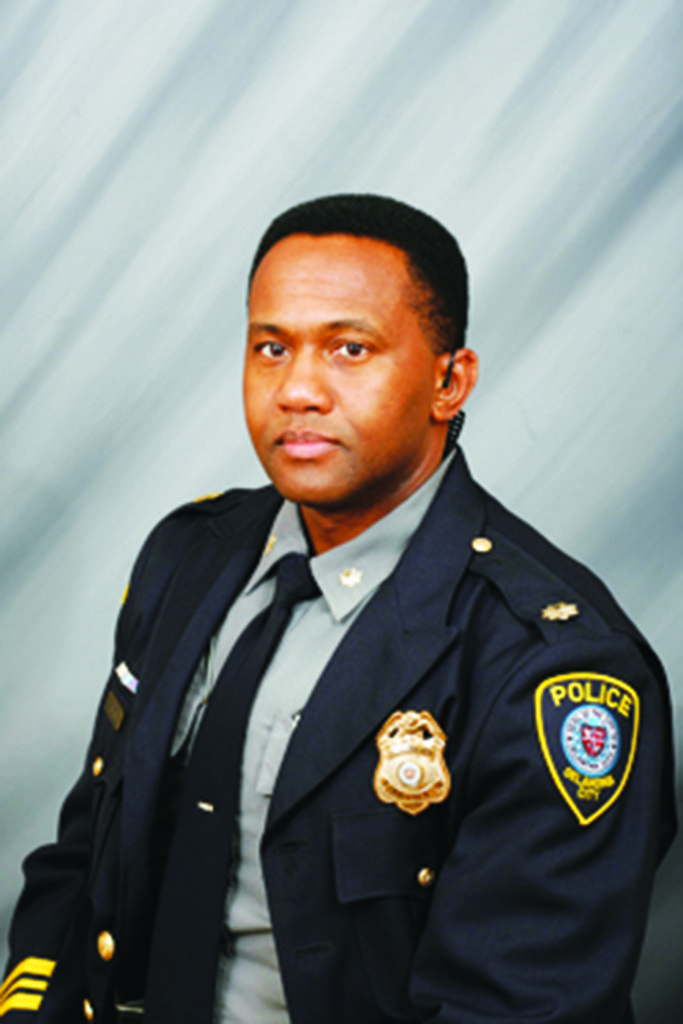
Q: The total number of forcible and non-forcible sex offenses reported in the 2021 Annual Security Report on campus between 2018 and 2020 is four. Do you believe this number accurately reflects the true number of cases of sexual offenses on campus?
A: The number of non-forcible sex offenses listed in the OCU 2021 Annual Security Report accurately reflects the number of incidents reported to OCU Police and those reported to OCU CSA’s (Campus Security Authorities) who are required to report that information to campus police. A CSA member is not necessarily a police officer. They consist of university staff, faculty, employees, and contractors.
Obviously, there could be incidents worthy of reporting that were not reported to police or to any of the university’s CSA [members] for a number of reasons. We can only report the incidents that are reported to us. I’ve been in law enforcement for over 34 years. I know that some criminal activity goes unreported in the general public. College and university campuses are no different in that regard.
Q: The total number of dating violence and domestic violence cases reported between 2018 and 2020 is zero. Do you believe this number accurately reflects the true number of cases of dating and domestic violence on campus?
A: Again, the reported number of dating violence and domestic violence incidents in our Annual Security Report reflects the actual number of incidents reported to campus police and the universities CSA’s during that time period.
College campuses are small microcosms of society. Anything that occurs in society as a whole can happen here on campus.
Because our campus is smaller in comparison we can be expected to encounter much lower incidents of domestic violence. I’m not saying that our campus is immune to these types of incidents, but none were reported to us during that time period.
Students have many resources at their disposal should they experience domestic or dating violence on campus whereas the general public is limited.
Q: Oklahoma State University warns that out of their “26,000 students, about 2,600 women and 800 men will experience sexual assault while here at OSU.” If you believe OCU has fewer cases of sexual assault, what makes our university different?
A: OCU has fewer sexual assaults in comparison to OSU because we have fewer students. OCU has far less enrolled students and even fewer living on campus.
Every college and university police department in the country is working to lower and/or prevent sexual assaults in their jurisdiction.
Sexual assaults can occur on or off-campus and have no connection at all to a college or university other than that the victim was a student. Colleges & universities would have no way of knowing about a sexual assault unless it was reported to the college or university. Universities often have more resources at hand to assist victims in recovery from sexual assault.
I’m not naïve enough to think sexual assaults don’t or have not occurred here at OCU, but they are seldom reported to the police. That may be due to the fact victims are ashamed, didn’t think the act or incident amounted to sexual assault, or for a variety of other reasons.
Q: Would you like to make any other statement to be published in Media OCU for Domestic Violence Awareness month?
A: Statistics tell us, a sexual assault occurs approx. every 68 seconds in the United States, and though the numbers are far less, men are also included as victims.
Approx. one out of every six women in the US have suffered a sexual assault or sexual assault attempt. That is a staggering statistic. Think of six women that you know and the odds are, one or more of them have been sexually assaulted at some point in their life. If not, that attack may be yet to come.
Most sexual assaults occur at or near a victim’s residence where they are less likely to be on guard from an attack. Transgender students are at even higher risk of sexual assault.
Since most students room with persons of the same sex, one would expect the numbers to be lower among college students, but college students often frequent other student’s rooms and they party.
Regardless of sexual preference of gender or victim location, the use of alcohol, and recreational drugs often plays a big role in sexual assaults at colleges and universities.
Students leave home, many for the first time, and explore newfound freedom as young adults. They take risks, explore boundaries, and sometimes fail to recognize warning signs and obvious dangers.
Regardless of the circumstances, anyone who falls victim to sexual assault should understand if it happens to them, it is not their fault. You can and should take precautions to protect yourself, but sometimes bad things still happen.
“No” should always mean “No” and “Stop” should always mean “Stop” but that does not always occur. Regardless of the circumstances, we (police) encourage any victim of sexual assault to report the incident and seek help needed help in the form of counseling or therapy.
In every incident of sexual assault, involving anyone above the age of 18, the victim, not the police, always decide whether or not to pursue criminal charges.


Leave a Reply